Note: The list of speakers is subject to continuous updates and additions.

Johan Rockberg
Professor in Antibody Technology and Directed Evolution
KTH Royal Institute of Technology
As Professor in Directed Evolution and Antibody Technology, Johan Rockberg heads a research group of ten at KTH Royal Institute of Technology, Stockholm.
His research team has a strong method development focus, directed at both discovery and bioprocess development of next generation biologics, including gene therapy and immunomodulating bi-specific antibodies. To this end, directed evolution and systems biology are tools used for improvement of both compound and producer cell lines. A particular research interest is human cell homeostasis and secretional machinery during stress such as upon viral propagation or during bioreactor cultivation. He is the director of AAVNova, for the development of next generation bioproduction platforms for virus-based gene therapy.
Since 2019, Prof. Rockberg is an elected member of the Swedish Young Academy. He has been holding industry positions as Director Biosynergy at Alligator Bioscience AB, Lund Sweden, as CSO of Atlas Therapeutics AB, Stockholm Sweden and is a co-founder of Abclon Inc, Seoul South-Korea, all focused on cancer immunotherapy.

Johan Zelano
Professor of Neurology
University of Gothenburg and Sahlgrenska University Hospital
Epilepsy – a predisposition for seizures – affects over 50 million worldwide. About two thirds become seizure-free on antiseizure medications (ASMs), but finding the right drug can take time and side effects are common, there among cognitive and psychiatric symptoms. A fundamental problem in epilepsy care and clinical trials is the absence of biomarkers for monitoring of treatment effect and safety; patients are not aware of all seizures and ASMs can have severe side effects. The talk will describe recent developments in fluid biomarker research in epilepsy, particularly plasma proteomics which seems to offer interesting possibilities for health care and drug development.
Johan Zelano runs a translational research program studying epilepsy treatment with a particular focus on clinical care and biomarkers. He has a preclinical PhD in Neuroscience from Karolinska Institutet and did his postdoctoral and clinical training in Uppsala, before starting his research group at Sahlgrenska University Hospital in 2016. In 2023, he was appointed Professor of Neurology at the University of Gothenburg.

Dag Sehlin
Professor of Molecular Geriatrics
Uppsala University
Alzheimer’s disease is characterized by the aggregation and deposition of the protein amyloid-beta (Aβ), which initiates a cascade of pathological events including neuroinflammation, synaptic dysfunction, and neurodegeneration. The recent approval of therapeutic antibodies targeting pathological forms of Aβ has underscored the need for precise identification of patients who may benefit from such treatments. To address this, we have engineered bispecific antibodies capable of efficiently crossing the blood-brain barrier at concentrations suitable for in vivo PET imaging, enabling quantification of pathological Aβ levels in the brain.
Dag Sehlin is a Professor of Molecular Geriatrics at Uppsala University. His research focuses on the molecular mechanisms of Alzheimer’s disease and the development of antibody-based therapies and diagnostic tools targeting the pathological hallmarks of the condition.
His research group has developed antibodies that selectively bind to aggregated forms of amyloid-beta, a key protein involved in Alzheimer’s pathology. The antibody lecanemab, developed together with the company BioArctic, was recently approved as the first disease-modifying treatment for Alzheimer’s disease.
To enhance delivery across the blood-brain barrier, the group employs a ‘Molecular Trojan Horse’ strategy by engineering bispecific antibodies that utilize receptor-mediated transcytosis. This approach significantly improves brain uptake of antibodies and has enabled pioneering advances in antibody-based PET imaging of brain targets.

Sarah Fredriksson
CEO
Aqilion
Aqilion has identified AQ280 as a potential treatment for eosinophilic esophagitis (EoE), an inflammatory disease of the esophagus that is also known as “allergic esophagitis”. EoE causes difficulty swallowing, pain, reflux, food impactions, and, in children, poor growth. and weight loss. There is a significant unmet medical need, and long-term risks include esophageal strictures and reduced quality of life . Aqilion matched the mode of action of recently approved biologics for treatment of EoE with cytokine networks known to drive the EoE pathogenesis. It was clear that EoE is a difficult to treat disease. Aqilion identified and acquired AQ280, a new super selective JAK inhibitor, with potential to address several drivers of EoE and to meet the medical need for patients unresponsive to existing therapies.
Sarah Fredriksson is a scientist turned entrepreneur. Her main inspiration and motivation come from new knowledge and science that could potentially change the future for people suffering from diseases that currently lack effective treatments. She founded Genovis AB right after completing her PhD in biochemistry at Lund University. Over more than 15 years as CEO, she was part of a young, dedicated team that developed and launched products on a global market, including through subsidiaries in the US. The company was listed on First North, Nasdaq OMX Nordic, at the same time.
Sarah has many years of experience in leadership and product development within smaller, innovative biotech companies. For several years, she’s been active as an entrepreneur, CEO, and board member of both private and public life science companies. She has also served on the board of Lund University, Lund University School of Engineering (LTH), and the industry organization SwedenBIO. Additionally, she is active as a mentor at the Termeer Institute in the US.

Lars Bräutigam
PhD, Head of Zebrafish Core Facility
Karolinska Institutet
The zebrafish has developed from a niche animal model to the second-most used laboratory animal species in the EU. It has revolutionized basic and applied research and is a highly important complement to traditional rodent models for pre-clinical research and drug development pipelines.
During my talk I will introduce you to this largely unknown animal model and present to you its fantastic potential for pre-clinical research and its advantages for studying human physiology and pathology.
I will also discuss ethical aspects of using the zebrafish as animal model and its importance for adhering to the legally binding 3R strategy, namely to Reduce, Refine and Replace animal research where it is scientifically possible.
I am Lars Bräutigam, head of the zebrafish core facility at Karolinska Institutet, the largest zebrafish core facility in the Nordic countries.
I have studied biology in Germany before moving to Karolinska Institutet for my graduate studies. After finishing my PhD, I worked as a postdoc and team leader in different research areas including redox biology, biochemistry and translational medicine.
During my whole research career, I have been using zebrafish as laboratory model and followed closely its development from a niche animal model to the second-most used model species in the EU.
Since 2018, I have been the head of the zebrafish core facility at Karolinska Institutet. Together with my staff, we have established one of the leading zebrafish facilities in Europe providing complex research services to academic and corporate users.
Besides my role as core facility manager, I am the head of Karolinska Institutes animal welfare body and ordinary member of the Stockholm ethical committee. I am also ordinary member of the Swedish National committee for the protection of animals used for research purposes which serves as steering group for the Swedish 3R center.

Photo: Liza Simonsson
Fredrik Barrenäs
Senior researcher in Bioinformatics, Immunology, and AI
CTO and Co-founder
Mavatar
Disease research is drowning in data but starved for insight. Traditional pipelines are often slow, fragmented, and resource-heavy – delaying discovery and driving up costs. What if researchers could uncover new drug targets, biomarkers, and disease mechanisms in days, not months?
In this session, Mavatar CTO and researcher Fredrik Barrenäs will show how Mavatar Discovery can transform transcriptomic data into clear, actionable biology – in days, not months. Through a live demo and a rare disease case study on Epidermolysis Bullosa, he will illustrate how uncovering hidden networks reveals mechanisms, biomarkers, and therapeutic opportunities that traditional methods often miss. No code. No bottlenecks. Just the fastest path to your next breakthrough.
Fredrik is a bioinformatics researcher and CTO & Co-founder of Mavatar, where he leverages AI and big data to personalize medicine and accelerate drug discovery. His work spans immunology, disease mechanisms, and pharmaceutics, with a focus on uncovering novel insights through data-driven research. He is currently leading the launch of Mavatar Discovery, the company’s first commercial platform—a next-generation SaaS solution designed to empower researchers, pharma, and academia with faster, deeper, and smarter exploration of biomedical data.
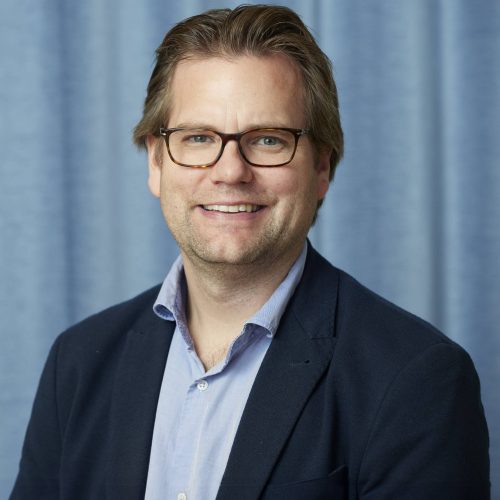
Rikard Landberg
Professor of Food and Health, Head of Division of Food and Nutrition Science
Chalmers University of Technology
Guest professor, The Wallenberg laboratory
Sahlgrenska Academy, University of Gothenburg
Diet is a major determinant of health and disease globally. Despite wide knowledge about general recommendations to promote health and sustainability, people do often not adhere to the recommendations and there is large inter-personal variation in the response to foods. Therefore, there is a great need to develop and implement more personalized dietary advice to improve adherence and the preventive effects of foods. In this presentation I will outline different personalization strategies relying on comprehensive data and their long-term effects on health. I will also present a unique large precision nutrition study, SCAPIS2-HOME, that we are currently conducted within the ongoing prospective cohort study SCAPIS in Sweden. This study has invited more than 4000 participants and allow us to characterize metabolic effects to meal challenges and relate differential metabolic response patterns to long-term health outcomes with the aim to define the individual’s optimal metabolic response pattern and develop personalized nutrition algorithm that can guide the individual to the right diet to promote such response.
Rikard Landberg is Professor of Food and Health and Head of the Division of Food and Nutrition Science at Chalmers University of Technology, and Visiting Professor at the Wallenberg Laboratory, Institute of Medicine, Sahlgrenska Academy, University of Gothenburg. His multidisciplinary research focuses on the preventive role of plant-based diets, bioactive food components, and dietary patterns in cardiometabolic disease and gut health. Prof. Landberg has published over 240 peer-reviewed papers, is Editor-in-Chief of Nutrition Journal, and serves on editorial boards of The Journal of Nutrition and Frontiers in Nutrition. Landberg is and elected member of the Royal Academy of Engineering Sciences and is the Chairman of the National Committee for Nutrition and Food Science at the Royal Swedish Academy of Sciences. He is the co-director of the national metabolomics and exposomics platform at SciLifeLab and the co-founder of the Precision Nutrition Forum, a scientific collaboration and dissemination platform for the leading researchers in Precision Nutrition globally.
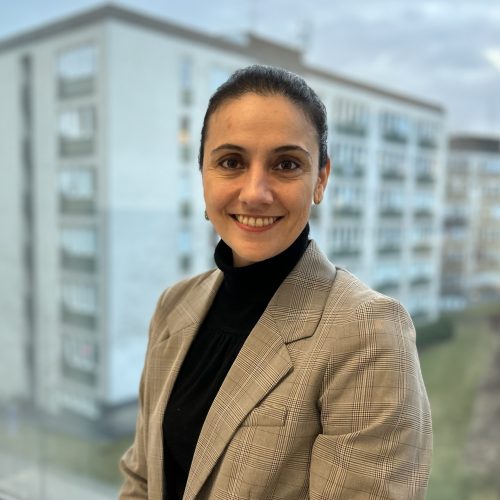
Andri Papakonstantinou
Chief Consultant Breast, Endocrine Tumors and Sarcoma Oncology Unit, Theme Cancer
Karolinska University Hospital
Cardiotoxicity is a known side effect of anti-HER2 therapies. Despite reduction of anti-HER2 related cardiotoxicity incidence with modern therapies, current guidelines recommend regular monitoring of cardiac function. In this session, safety of anti-HER2 therapies, optimization of cardiac monitoring resources and candidate circulating biomarkers for early cardiotoxicity detection and monitoring will be discussed.
Dr Andri Papakonstantinou is a senior oncology consultant, post-doctoral researcher and head of the Unit of Breast Cancer, Endocrine tumors and Sarcoma oncology at the Karolinska Comprehensive Cancer Center, Karolinska University Hospital, and Karolinska Institutet, Stockholm, Sweden.She holds a MSc in Clinical Trials from London University, International Programmes, and a doctoral degree (PhD) from Karolinska Institutet, Stockholm, Sweden. In 2020, Dr Papakonstantinou was awarded an ESMO Translational Research Fellowship to be performed at Vall D´Hebron Institute of Oncology (VHIO), Barcelona, Spain, for the project “Impact of microbiota on breast cancer prognosis and treatment efficacy”. In 2022 she was awarded a Post-doctoral Grant from the Swedish Society for Medical Research (Svenska Sällskap för Medicinsk Forskning, SSMF). She is adjunct author in the Swedish National Guidelines Committee for Breast Cancer (cardio-oncology chapter), the chair of the National Guidelines Committee for extremities and bone sarcomas, a member of the Nordic Cardio-Oncology Society an ESMO Leaders Generation Programme 2020 alumni and member of the ESMO Public Policy Committee and the Community Oncology Task Force. Dr Papakonstantinou´s research focuses on toxicity related to cancer therapies, with focus on cardiotoxicity.

Laura Baranello
Principal Researcher – Associate Professor, Department of Cell and Molecular Biology
Karolinska Institutet
Inhibitors of DNA topoisomerases are mainstays of anticancer therapy. While they have proven effective, the toxicity of current topoisomerase drugs limits their use in clinic. Developing tumour-specific topoisomerase inhibitors requires a deeper understanding of the mechanisms of these enzymes.
Topoisomerases are crucial for DNA replication and transcription, as they relieve torsional stress by unwinding double-stranded DNA. Our lab has discovered that, contrary to previous assumptions, topoisomerases are regulated by diverse protein partners, revealing novel functions and mechanisms of action. In this talk, I will present our recent findings showing that the Myc oncoprotein—a central transcriptional regulator—recruits topoisomerases and enhances their activity. A mechanistic understanding of this regulation offers a foundation for designing next-generation therapeutics. Toward this goal, I will share our latest pre-clinical study demonstrating that pharmacologically disrupting topoisomerase regulation is a promising strategy to suppress tumour growth while minimizing systemic-toxicity.
Laura Baranello received her PhD in Molecular Biology from the University of Bologna, Italy, and completed her postdoctoral training in Genomics at the National Institutes of Health, USA. Since 2017, she has been a faculty member at the Karolinska Institute. Her research focuses on the regulation of DNA topoisomerases and their role in tumor biology, work that has earned her numerous awards and recognitions. These include grants from the ERC and the Wallenberg Foundation, the Johnson & Johnson Women in STEM2D Award (2022), and the Göran Gustafsson Prize in Molecular Biology (2024).
Her group aims to uncover the still poorly understood mechanisms of topoisomerase regulation that sustain cancer cell proliferation, with the long-term goal of translating these insights into therapeutic strategies to block cancer progression.

Co-founder and CSO
QureTech Bio
The discovery and applications of antibiotics have played a crucial role in modern medical history and have protected humans from life threatening infections. However, misuse of broad-spectrum antibiotics has enabled bacteria to develop resistance to most of the existing antibiotics.1 Hence, development of new antibacterial agents with unique structures and unconventional mode of action is urgently needed to alleviate the global drug resistance problem. We have developed a novel class of synthetic antibiotics derived from a bicyclic thiazolo-2-pyridone scaffold that we have named GmPcides (Gram Positive Cides). More than 300 analogues have been synthesized, a number of these novel GmPcides show antibacterial activity in the low micromolar range. The new GmPcides are bactericidal to MRSA resistant to last-resort antibiotics, such as daptomycin, as well as to non-dividing MRSA cells, such as preformed persisters. Importantly GmPcides showed favorable efficacy in a mice model of S. aureus murine skin and soft tissue infections and the bacteria have so far been unable to develop resistance to this new generation GmPcides. This presentation will describe the discovery of the GmPcides and our efforts to bring this potentially new antibiotic class to the market.
Dr. Fredrik Almqvist is Professor in organic chemistry at the Department of Chemistry, Umeå University. He is also the Director of Umeå Centre for Microbial Research (UCMR) at Umeå University. Almqvist has more than 25 years of experience in research projects aiming at finding new alternatives to combat pathogenic bacteria. He is an organic and medicinal chemist by training but his research activities have been collaborative, involving experts in complementary fields ever since he started his independent career in the late 90’s. Besides his Academic work he has also started two companies where the company QureTech Bio AB specializes in new antibiotics to make a difference within AMR.
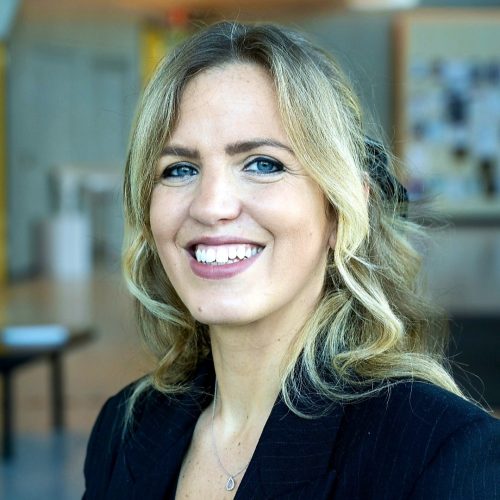
MD, PhD in Epidemiology
Karolinska Institutet
Blood biomarkers of Alzheimer’s disease (AD), such as p-tau217, NfL, and GFAP, are emerging as promising tools for the early detection of dementia and for understanding disease mechanisms. In my talk, I will present findings from a Swedish community-based cohort including clinical and biological data from more than 2,000 older adults. I will discuss the clinical utility of AD blood biomarkers in real-world settings, and how somatic comorbidities can both affect their circulating levels and shape their predictive accuracy for future dementia. This work aims to advance early and accurate detection of future dementia tailored to older adults with complex clinical profiles.
Giulia Grande is a neurologist and epidemiologist, currently Assistant Professor in Neuroepidemiology at the Aging Research Center, Karolinska Institutet. Her research focuses on advancing personalized dementia prediction by integrating blood biomarkers of Alzheimer’s disease with clinical data. She mainly works with the Swedish National Study on Aging and Care in Kungsholmen (SNAC-K), an ongoing longitudinal cohort study, where she serves as vice-PI and is responsible for the medical team. A key aspect of her research is understanding how somatic health influences both dementia development and the clinical validity of Alzheimer’s disease biomarkers in older adults with complex health profiles.
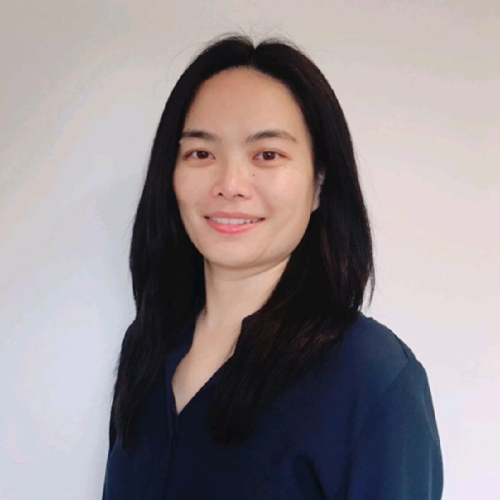
Regional Sales Manager
MedChemExpress
MedChemExpress (MCE) provides high-quality research reagents and tools to empower scientific discovery. This presentation highlights our comprehensive portfolio, including bioactive small molecules, PROTACs®, recombinant proteins, and compound libraries, supporting diverse areas such as cancer, immunology, and neuroscience. All products undergo rigorous quality validation with analytical documentation to ensure reproducibility and reliability. Partner with MCE to access the tools and expertise that accelerate your research and drive breakthroughs.
Jing is Sales & Marketing Manager at MedChemExpress, with broad experience in the life science industry. She focuses on supporting academic and industrial researchers across the Nordic countries, helping scientists with reliable solutions, strong customer engagement, and market development to advance their research and innovation goals.

Senior Research Scientist
Ofichem Uppsala
Bioconjugates are increasingly important in modern drug discovery, combining biological and chemical components to improve targeting, efficacy, and safety. Their development, however, requires a balance of innovative chemistry and robust characterization tools.
This presentation will provide an overview of conjugation strategies and practical aspects of synthesis, alongside the analytical and bioanalytical methods essential for studying these complex molecules. We will highlight common challenges in both synthesis and analysis, and share insights on how to design studies that avoid pitfalls and deliver meaningful results.
Matthijs Pijnappel is a Senior Research Scientist at Ofichem Uppsala AB with a Master’s degree from Stockholm University. He specializes in mass spectrometric analysis of peptides, proteins, bioconjugates, and small molecules, supporting pharmaceutical and biotech research with advanced analytical expertise. With extensive experience in mass spectrometric analysis, Matthijs has contributed to numerous projects involving the structural elucidation and quantification of peptides, proteins, bioconjugates, and small molecules.
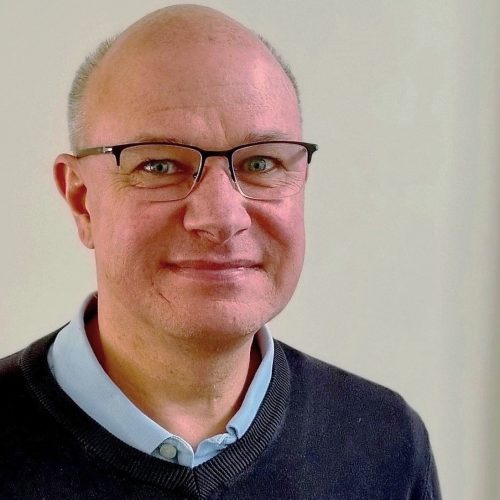
Principal Research Scientist
Ofichem Uppsala
Bioconjugates are increasingly important in modern drug discovery, combining biological and chemical components to improve targeting, efficacy, and safety. Their development, however, requires a balance of innovative chemistry and robust characterization tools.
This presentation will provide an overview of conjugation strategies and practical aspects of synthesis, alongside the analytical and bioanalytical methods essential for studying these complex molecules. We will highlight common challenges in both synthesis and analysis, and share insights on how to design studies that avoid pitfalls and deliver meaningful results.
Jonas Malmström is a Principal Research Scientist and Project Manager at Ofichem Uppsala AB, with over two decades of experience in medicinal chemistry and pharmaceutical development. His current work focuses on the design and synthesis of bioconjugates, including antibody-drug conjugates (ADCs), PROTACs, and other targeted therapeutic modalities.
With a PhD in Organic Chemistry from Uppsala University and senior scientific roles at AstraZeneca and Recipharm OT Chemistry, Jonas has developed deep expertise in medicinal chemistry, including bioconjugates, advanced organic synthesis, and nanoparticle formulation. He has led multidisciplinary projects from early discovery through to clinical development, with a strong emphasis on targeted delivery systems and chemical biology interfaces.
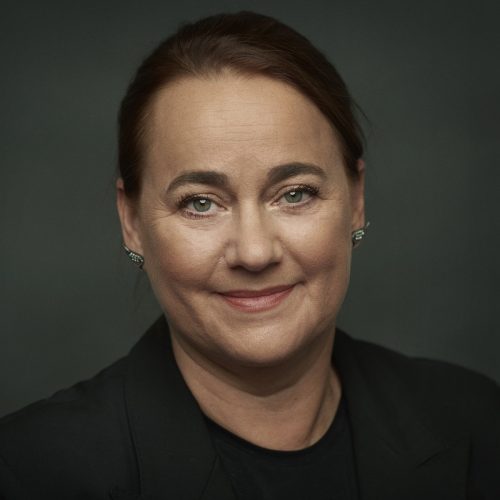
Founder and Partner, European Patent Attorney, Authorised Patent Attorney (SE)
aera
Exploring intellectual property ownership challenges at the convergence of biosciences and information technology. Using the AI ecosystem framework of untrained and trained models, training data, and generated outputs, we examine critical questions through examples and hypotheticals: Who owns AI-generated innovations? Who controls training, input, and output data? How do we protect biological discoveries created through machine learning? Addressing these complexities is essential for innovation in biotechnology’s AI-driven future.
Ylva is a founder and partner at aera AB, a European IP consultancy firm. Ylva is based in Stockholm.
Ylva entered the patent profession in 1999. After finishing a Ph.D. at BMC at Uppsala University, she specialized in strategic advising, prosecuting world-wide patent portfolios, life cycle management and litigation. Ylva has been a sought-after advisor for multinational companies, as well as universities and early stage companies, including technology transfer, during over a decade at one of the largest IP firms in Scandinavia.
Ylva has been a long-term part of the team handling international relations, such as the preferred-partner program as well as been responsible for handling international clients. She was long-term member of the management and a board member.
Ylva has helped several companies through IP due diligence in successful private and public financing rounds, and in giving firms advice on license negotiations as well as acquisitions.
She has a solid understanding of the value of IP as a business tool, and clients appreciate her pragmatic approach combined with her extensive experience in handling cases before the European Patent Office and other major and minor patent jurisdictions.
Clients appreciate her commitment, including the ability to understand and communicate complicated technical and legal issues.

U.S. Patent Attorney and U.S. Attorney-at-Law
aera
Exploring intellectual property ownership challenges at the convergence of biosciences and information technology. Using the AI ecosystem framework of untrained and trained models, training data, and generated outputs, we examine critical questions through examples and hypotheticals: Who owns AI-generated innovations? Who controls training, input, and output data? How do we protect biological discoveries created through machine learning? Addressing these complexities is essential for innovation in biotechnology’s AI-driven future.
Aaron is a U.S. Patent Attorney and U.S. Attorney-at-Law at aera AB, a European IP consultancy firm. Aaron is based in Stockholm.
His expertise and pragmatic approach come from a breadth of technical, legal, and corporate experience over the past two decades. Before joining aera, he led a team of patent attorneys and agents at The Boeing Company in Seattle, USA to develop and execute IP strategy for Boeing’s commercial businesses.
Aaron has had roles of increasing influence and responsibility as an electrical engineer, a state supreme court law clerk, an associate at a large U.S. law firm, and then in-house as Sr. Assistant General Counsel at Micron Technology and as IP Director at Boeing.
Multinational organisations rely on him during all stages of strategic patent portfolio development and exploitation—from invention harvesting to patent procurement to monetization. In addition to patent drafting and prosecution, he supports clients with IP counseling and strategies tailored to protect R&D, provide freedom of action, and generate revenue. This includes trade secret guidance, creating patent evidence-of-use (EOU) documents, negotiating and drafting IP licenses, and due diligence.
In-house teams and executives—especially those engaged in Transatlantic efforts—appreciate his knack for actionable, business-focused advice on IP portfolio development, patent assertion and licensing, collaboration agreements, U.S. government contracts, and participation in standard-setting organisations.

CEO and Chair
Abarceo Pharma
Adam Bruce is CEO and Chairman at Abarceo Pharma. Entrepreneur, inventor and life science enthusiast. Business studies in Lund, French and life studies in Paris. Founder, Chairman, BD and coffee maker at TikoMed for several years from innovation to Phase 2. Immersed in multiple indications from islet transplantation to neurology.
Denna webbplats använder cookies för att säkerställa att du får den bästa upplevelsen på vår webbplats. Du kan alltid hantera dina inställningar i rutan här.
Hantera dina cookie preferenser här:
Bidrar till att tjänsten är säker och fungerar som den ska och för att komma ihåg dina cookie-inställningar. De går därför inte att stänga av.
Statistikcookies samlar in information anonymt. Denna information hjälper oss att förstå hur våra besökare använder vår webbplats.
Google Analytics is a powerful tool that tracks and analyzes website traffic for informed marketing decisions.
Service URL: policies.google.com
Hitta mer information i vår Cookie Policy.